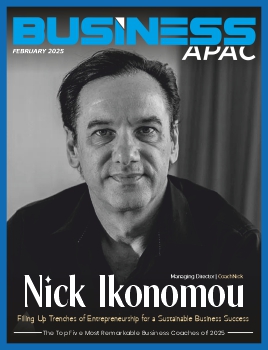Toronto, Canada’s largest city, is renowned for its vibrant multiculturalism, diverse economic sectors, and thriving digital economy. With its unique blend of global sophistication and local character, engaging the Toronto market requires a localized approach to content strategy. Businesses must create content that resonates with Toronto’s diverse audience while reflecting the city’s specific cultural, linguistic, and geographic nuances.
Developing localized content strategies for Toronto involves a mix of audience research, cultural sensitivity, and technical SEO expertise. This article explores how businesses can tailor their content to capture Toronto’s attention, improve brand visibility, and foster meaningful engagement.
1. Understanding Toronto’s Multicultural Demographics
Toronto is one of the most ethnically diverse cities in the world, with over 50% of its population identifying as immigrants. This multiculturalism offers a wealth of opportunities but also requires careful planning.
- Language Considerations: Content in English and French is essential while targeting other prominent languages like Mandarin, Punjabi, or Tagalog can further expand reach.
- Cultural Sensitivity: Messaging must avoid stereotypes and consider cultural norms to connect authentically with different communities.
- Localized Personas: Create audience personas that reflect Toronto’s unique demographic segments, such as young professionals in Liberty Village or families in Scarborough.
2. Incorporating Geographic Specificity
Localizing content for Toronto means addressing the city’s geography, from its neighborhoods to its landmarks.
- Neighborhood Spotlights: Highlight areas like Queen West, The Beaches, or Yorkville in your content to appeal to residents of those specific locales.
- Landmark Mentions: Reference iconic Toronto locations such as the CN Tower or High Park to create a sense of place.
- Regional Differences: Recognize variations in preferences across the Greater Toronto Area (GTA), such as suburban preferences in Mississauga versus urban lifestyles downtown.
3. Leveraging Local Events and Trends
Toronto’s lively event calendar and cultural trends provide fertile ground for localized content.
- Event-Based Content: Create blog posts or social media campaigns tied to events like the Toronto International Film Festival (TIFF), Pride Toronto, or Nuit Blanche.
- Seasonal Strategies: Highlight seasonal activities like ice skating at Nathan Phillips Square in winter or cherry blossoms at High Park in spring.
- Trend Monitoring: Keep an eye on local hashtags and viral topics to inform timely content.
4. Developing Hyper-Localized Keywords for SEO
Localized keyword research is a critical aspect of engaging the Toronto market.
- Location-Based Keywords: Incorporate phrases like “best coffee shop in Kensington Market” or “affordable condos in Etobicoke” into your content.
- Long-Tail Keywords: Use hyper-specific queries, such as “pet-friendly hotels near Pearson Airport.”
- Local Search Intent: Align keywords with Toronto-specific needs, such as “open late near Yonge and Dundas.”
5. Collaborating with a Local SEO Agency
Partnering with an experienced SEO agency can ensure your localized content strategy aligns with Toronto’s unique market dynamics.
- Market Expertise: A Toronto-based SEO agency understands local search trends, helping you stay competitive.
- Technical Optimization: They ensure your website is optimized for mobile users, particularly important for Toronto’s on-the-go audience.
- Content Strategy: From blog writing to multimedia production, an agency can create tailored content that drives engagement.
6. Highlighting Community Involvement
Community engagement is a cornerstone of successful localization efforts in Toronto.
- Local Partnerships: Collaborate with Toronto-based nonprofits, influencers, or businesses to increase your visibility.
- CSR Initiatives: Promote corporate social responsibility efforts in the city, such as environmental cleanups or food drives.
- Storytelling: Share stories about your involvement in local initiatives to strengthen your brand’s connection with the community.
7. Utilizing User-Generated Content (UGC)
User-generated content can help showcase your brand’s relevance to Toronto audiences.
- Encouraging Reviews: Request reviews on platforms like Google and Yelp to enhance local credibility.
- Social Media Campaigns: Run contests that encourage customers to share photos or experiences related to your brand using Toronto-specific hashtags.
- Spotlighting Customers: Feature UGC on your website or social media to build trust and show authenticity.
8. Creating Toronto-Centric Multimedia Content
Visual and multimedia content tailored to Toronto’s culture can boost engagement significantly.
- Video Marketing: Produce videos featuring Toronto landmarks or interviews with local influencers.
- Infographics: Develop infographics about Toronto-centric topics, like “Top 10 Attractions in Downtown Toronto.”
- Photography: Incorporate high-quality images of Toronto’s skyline, streetscapes, and cultural events into your campaigns.
9. Optimizing for Mobile and Voice Search
With Toronto’s tech-savvy population, optimizing for mobile and voice search is essential.
- Mobile-Friendly Design: Ensure your website is responsive, with quick load times and easy navigation.
- Voice-Friendly Keywords: Optimize content for conversational queries like “What’s the best poutine near me?”
- Local Apps: Consider integrating with popular local apps or creating your own to engage Toronto’s digital-first audience.
10. Building Strong Local Backlinks
Earning backlinks from reputable local sources is a key factor in improving SEO performance.
- Local Directories: List your business on Toronto-focused directories such as BlogTO or the Toronto Board of Trade.
- Press Coverage: Partner with local media outlets to gain exposure through articles or event sponsorships.
- Educational Partnerships: Collaborate with Toronto universities or colleges to create content or offer workshops, earning backlinks in the process.
11. Measuring Success Through Local Metrics
Regularly assessing your content strategy’s effectiveness ensures you stay aligned with the Toronto market.
- Local Traffic Analysis: Use analytics tools to track traffic from Toronto and surrounding areas.
- Engagement Metrics: Monitor likes, shares, and comments on Toronto-specific content to gauge audience interest.
- Conversion Tracking: Measure the success of calls-to-action tailored to Toronto users, such as signups or purchases.
Conclusion
Developing localized content strategies to engage the Toronto market requires a deep understanding of the city’s cultural diversity, geographic nuances, and digital behavior. By combining hyper-local content, targeted SEO techniques, and community engagement, businesses can build strong connections with Toronto audiences. Collaborating with a skilled SEO agency ensures that these efforts are strategically implemented, driving both engagement and search rankings. With the right approach, businesses can thrive in Toronto’s dynamic marketplace and establish themselves as trusted local leaders.
Also Read: Mass Content Platforms Becoming the Norm in the Indian Market




















